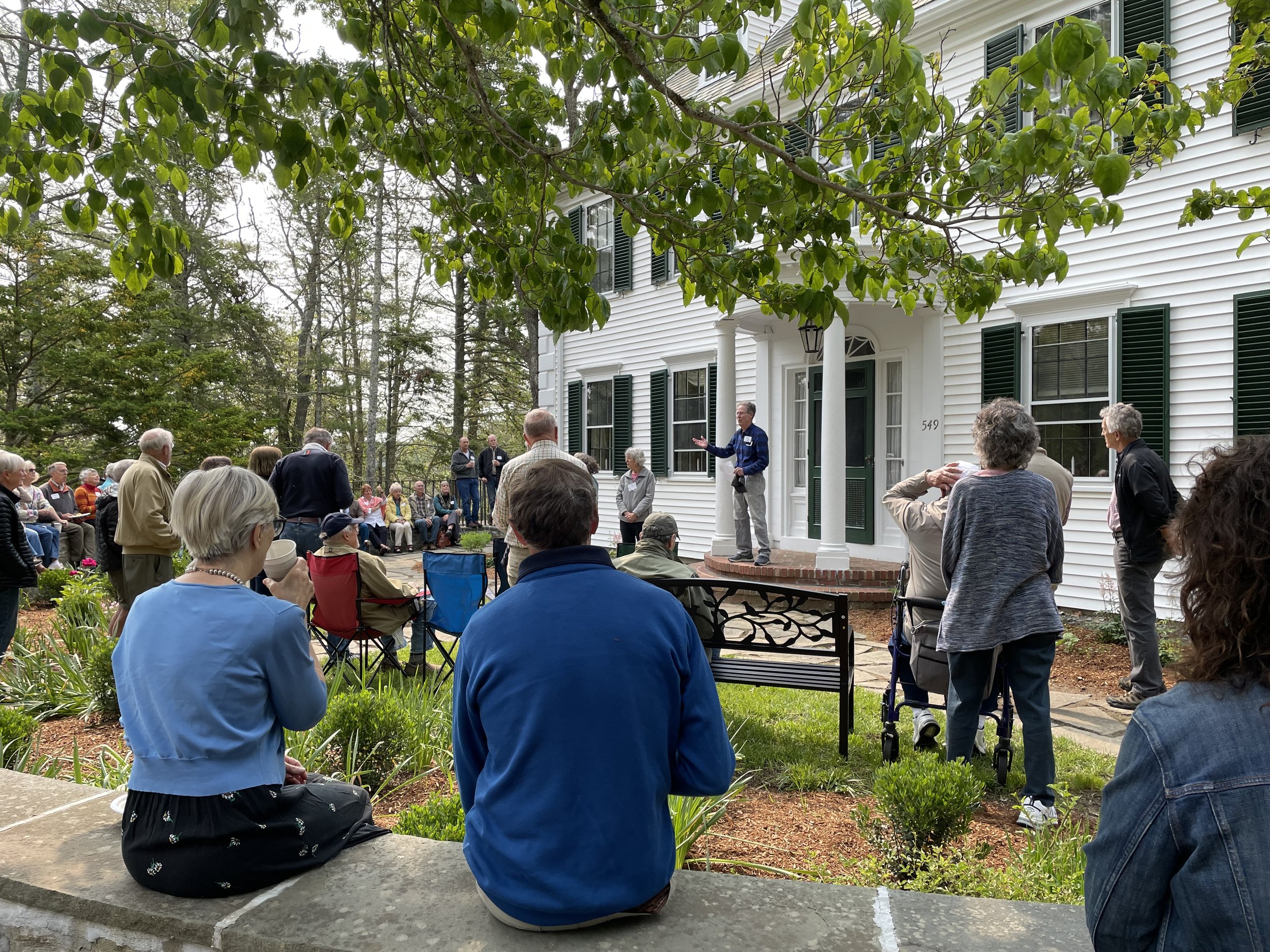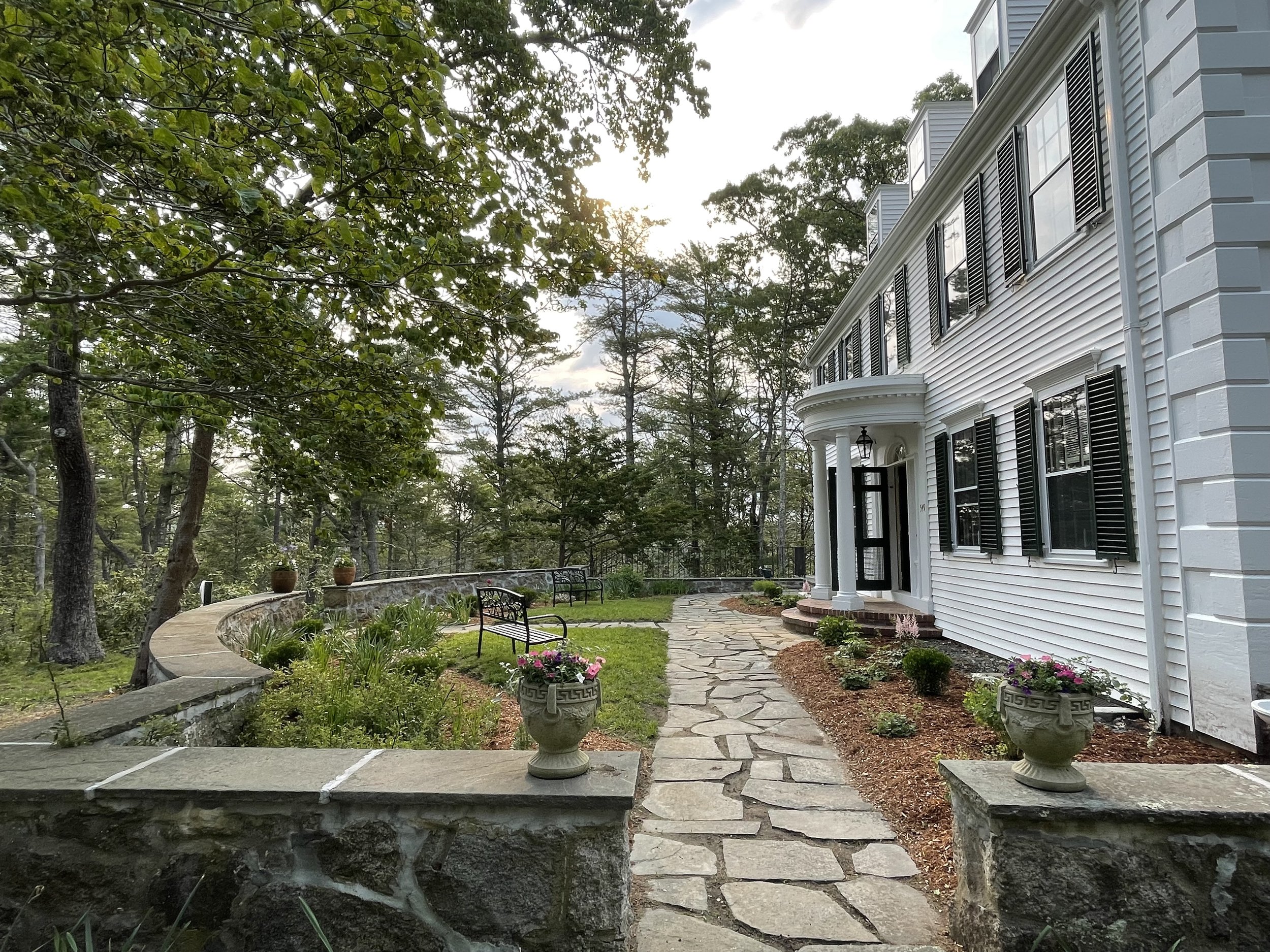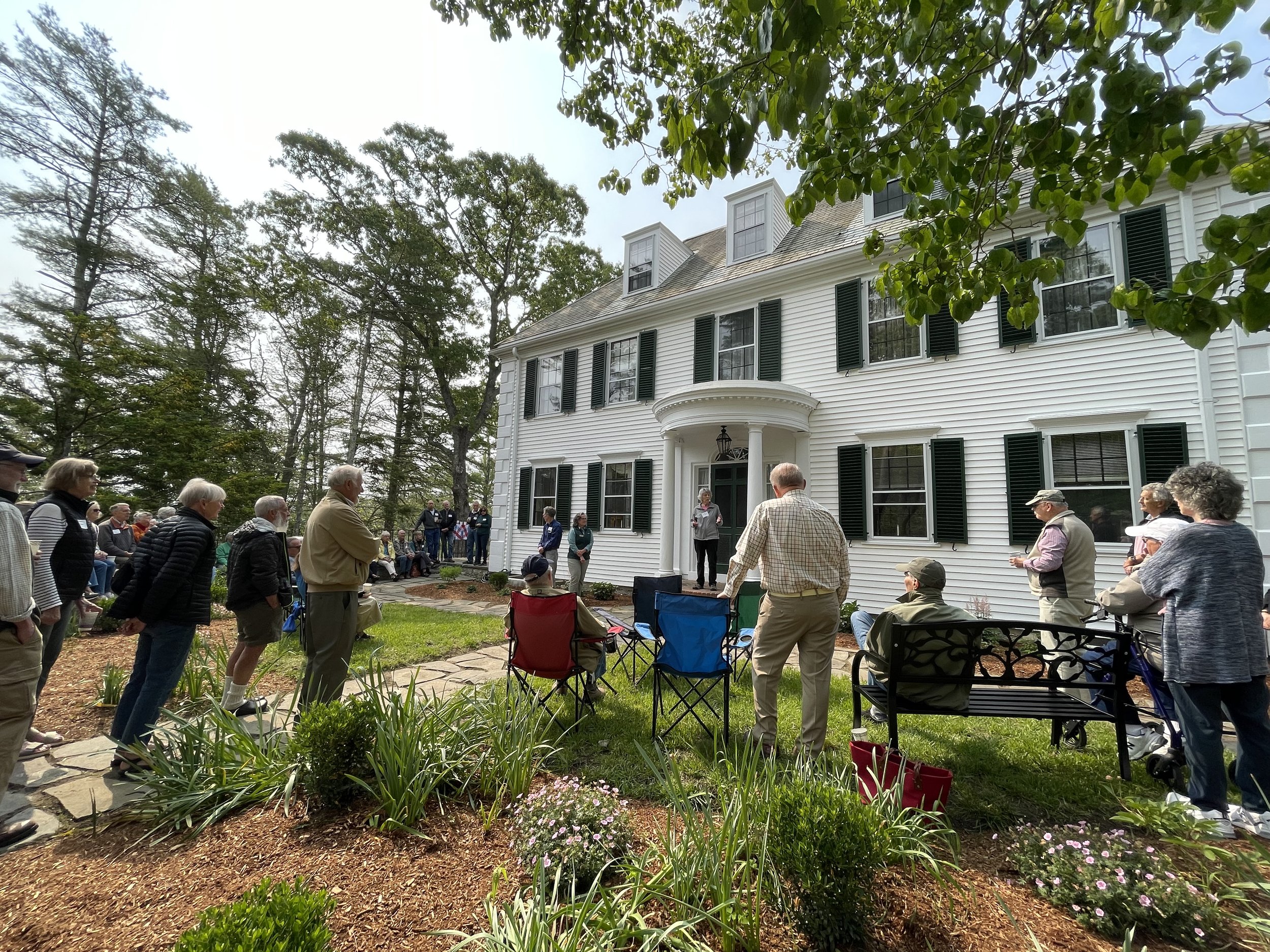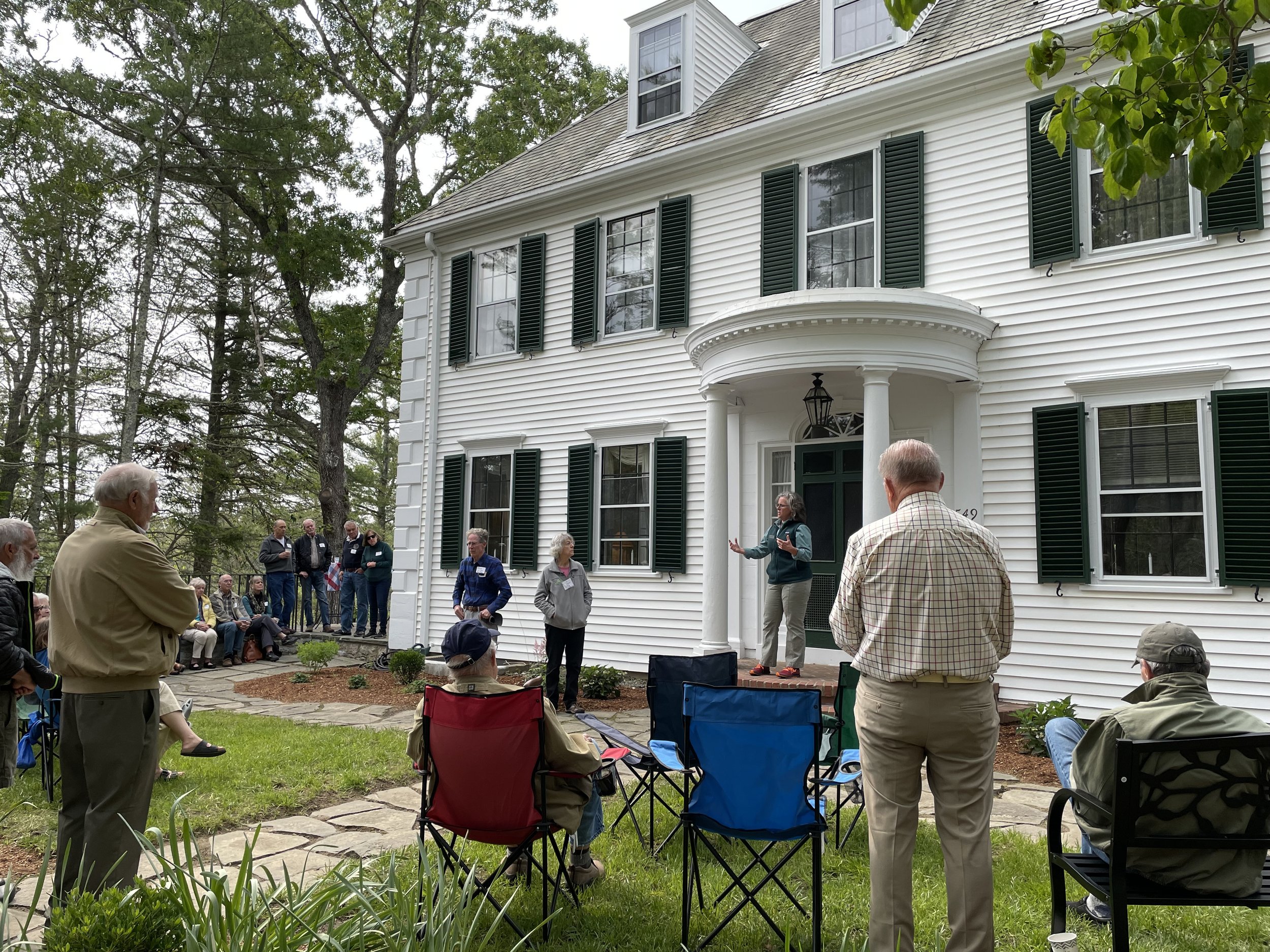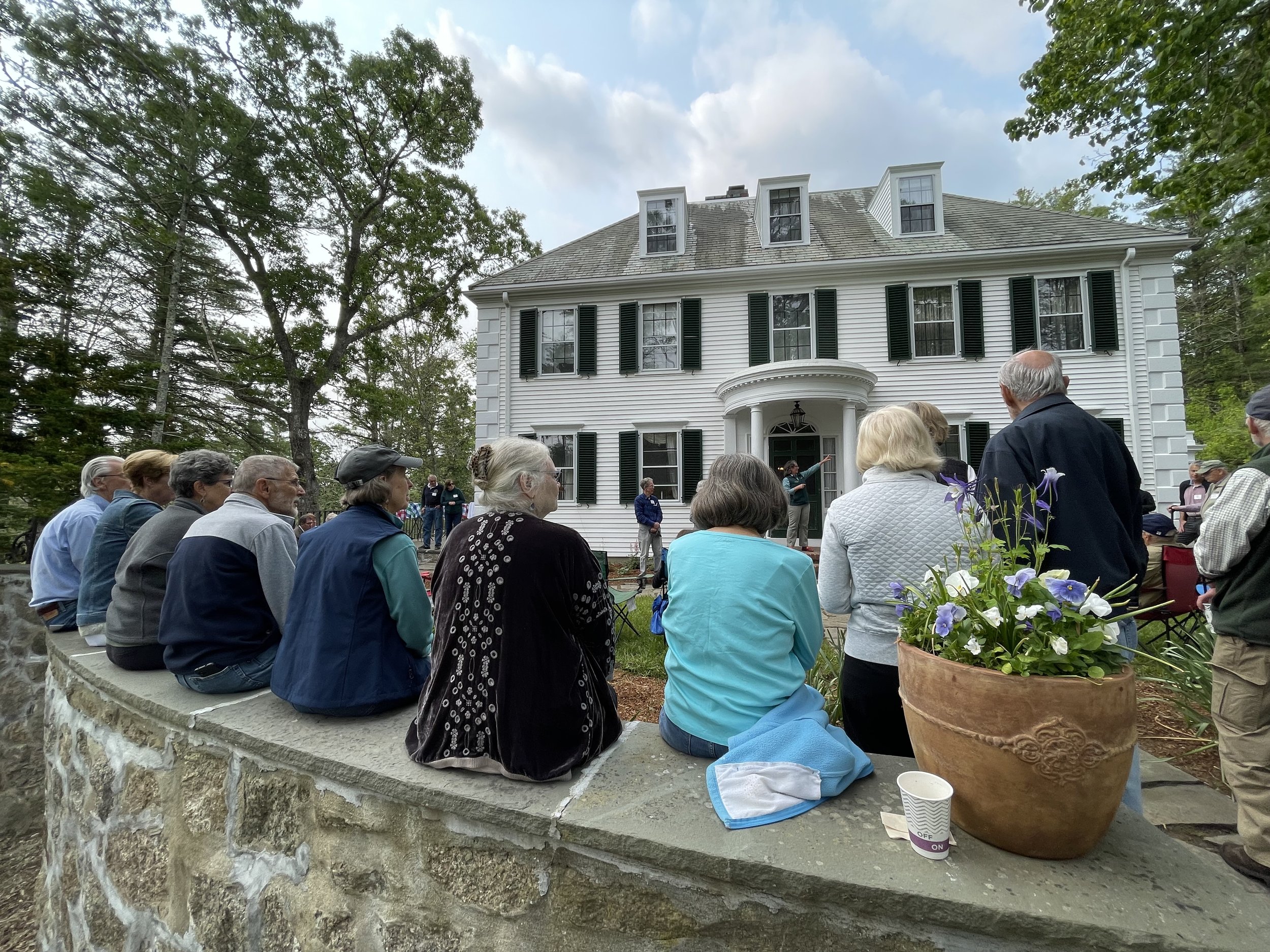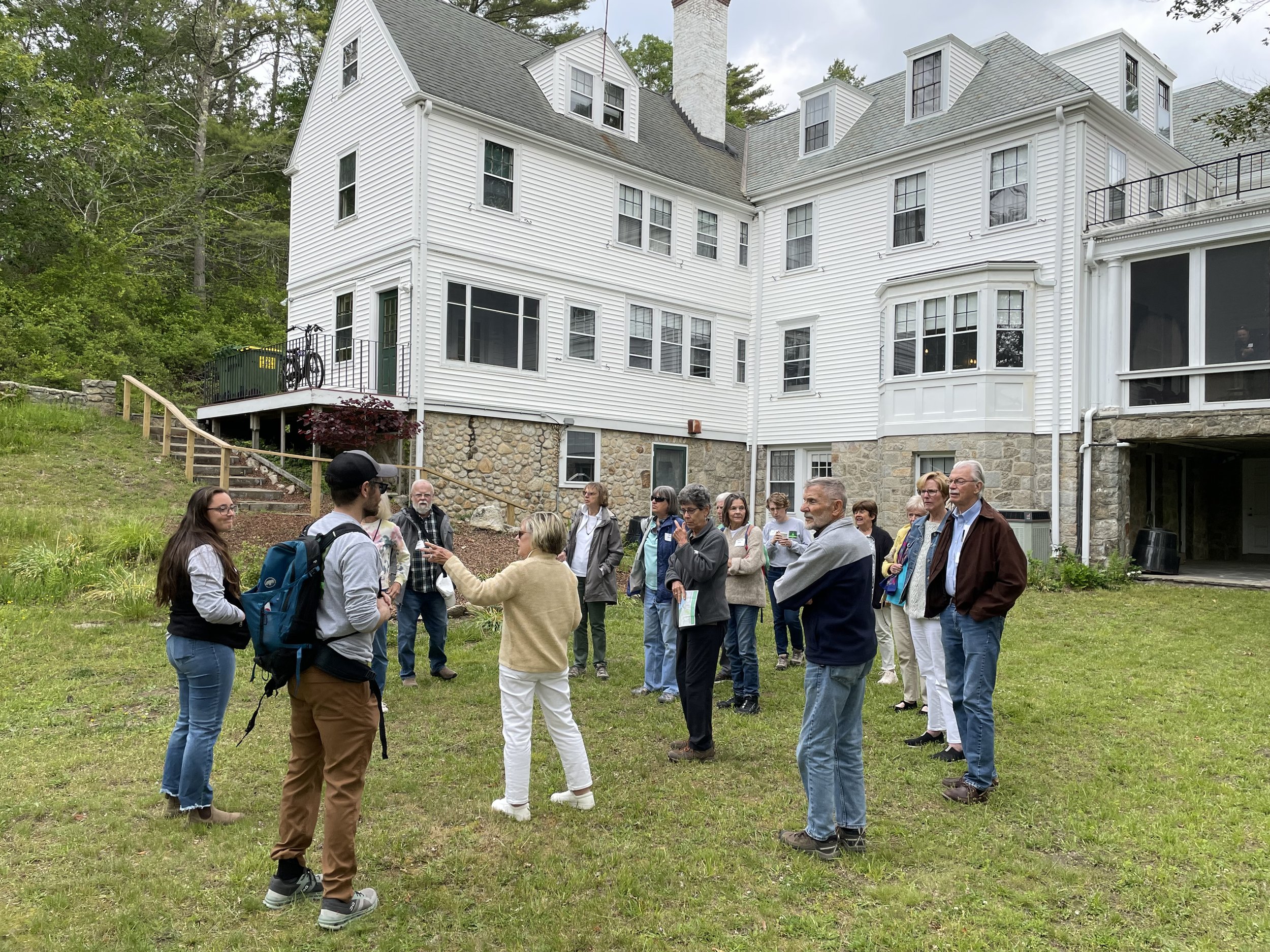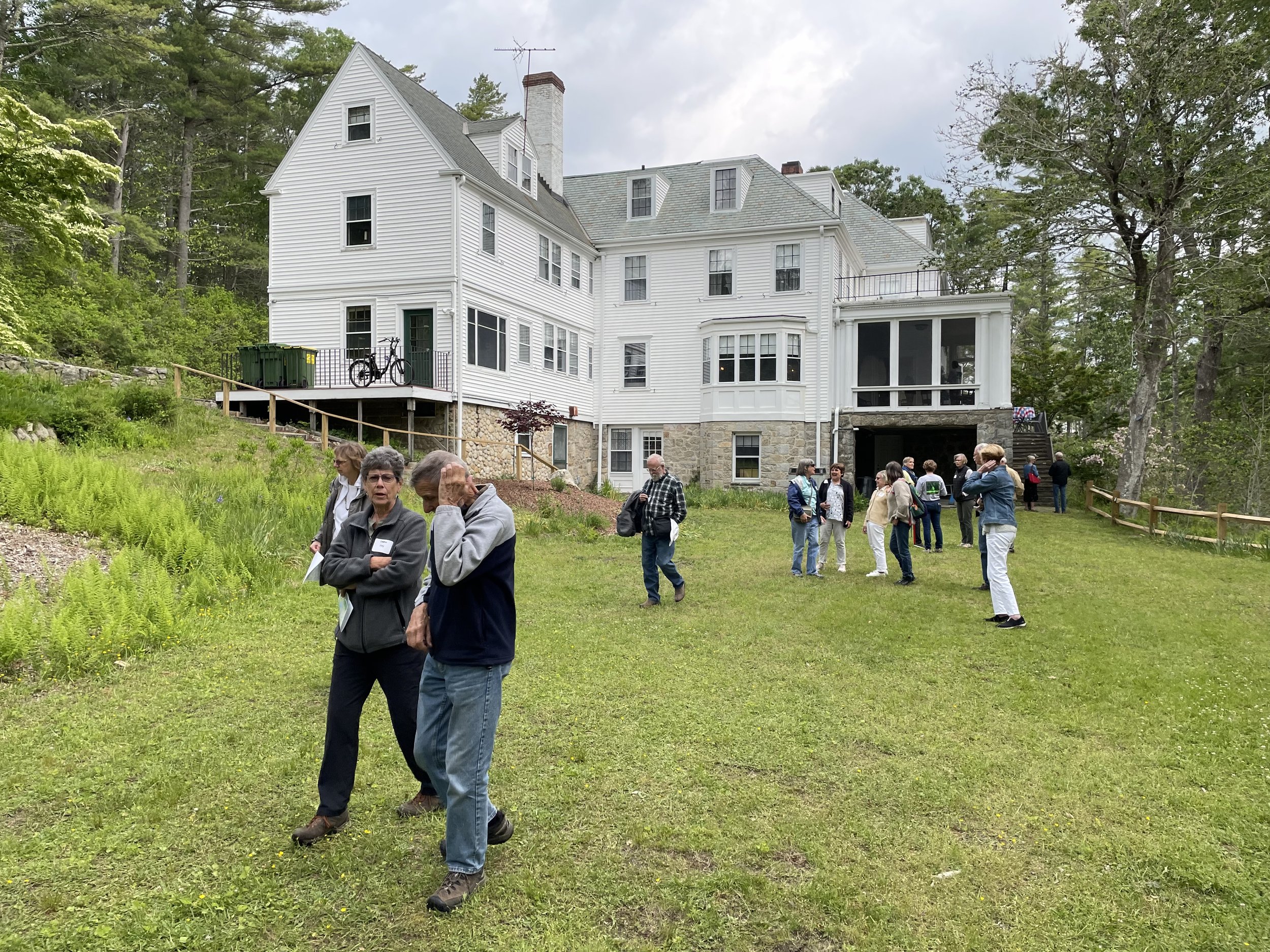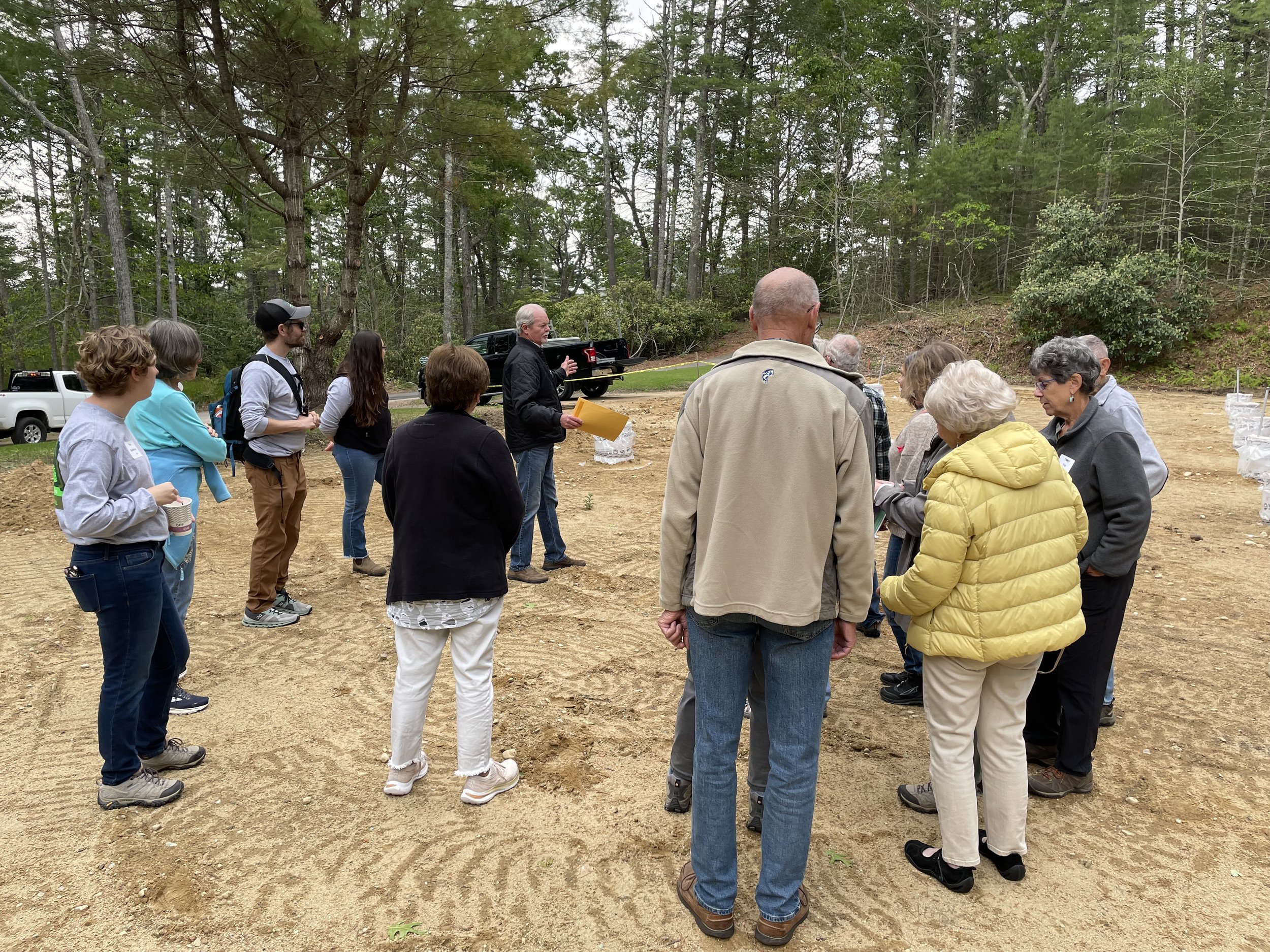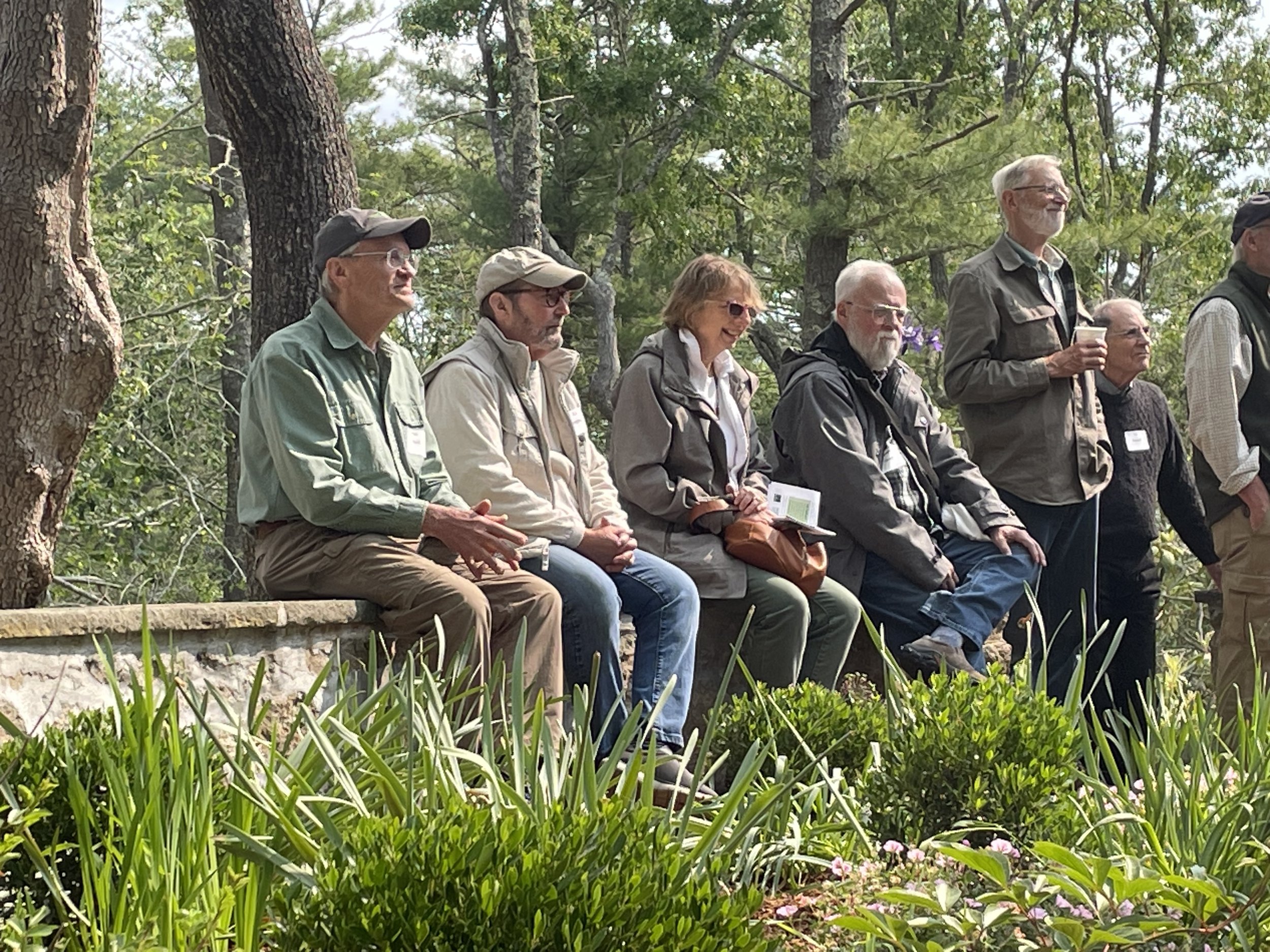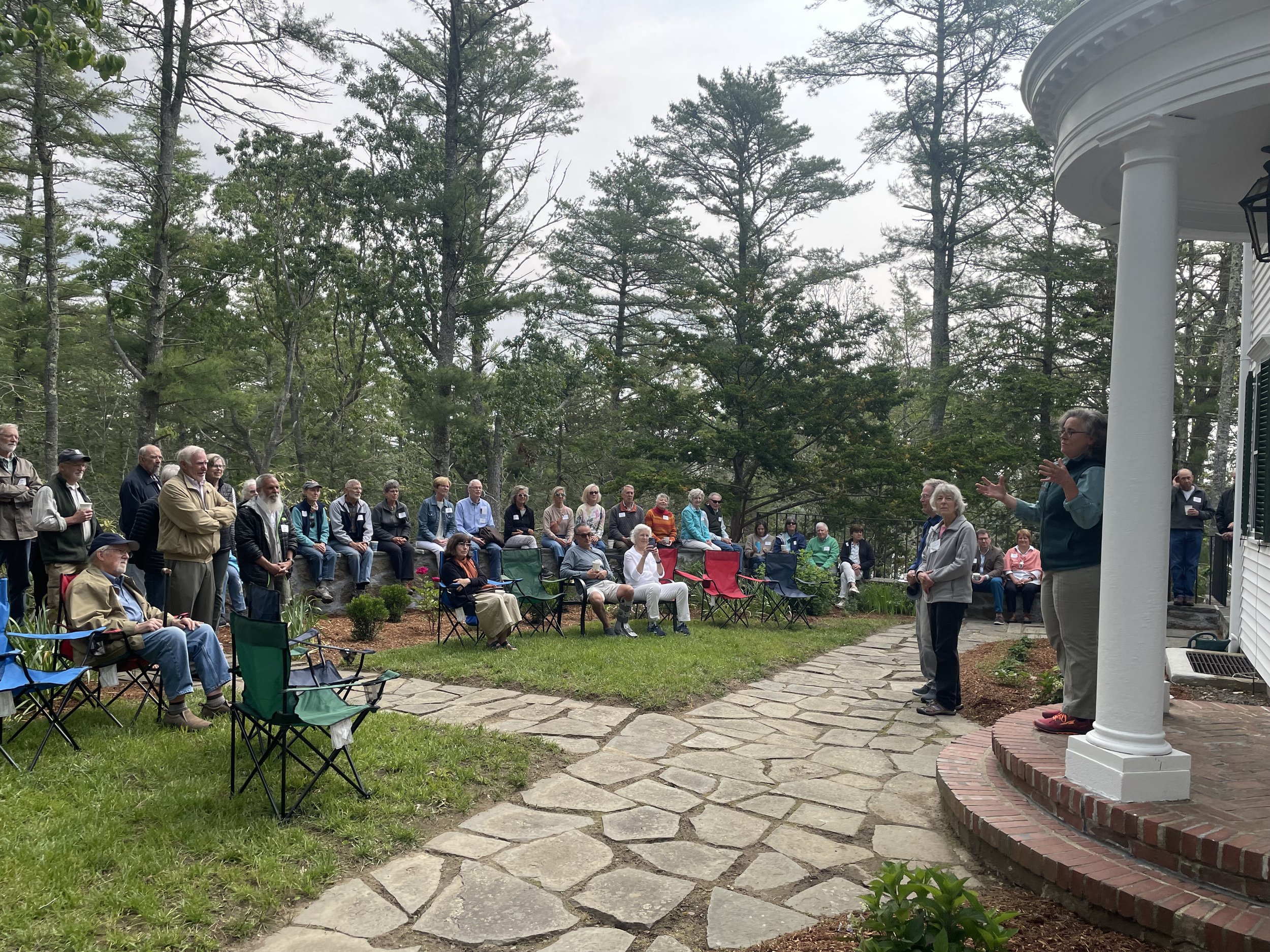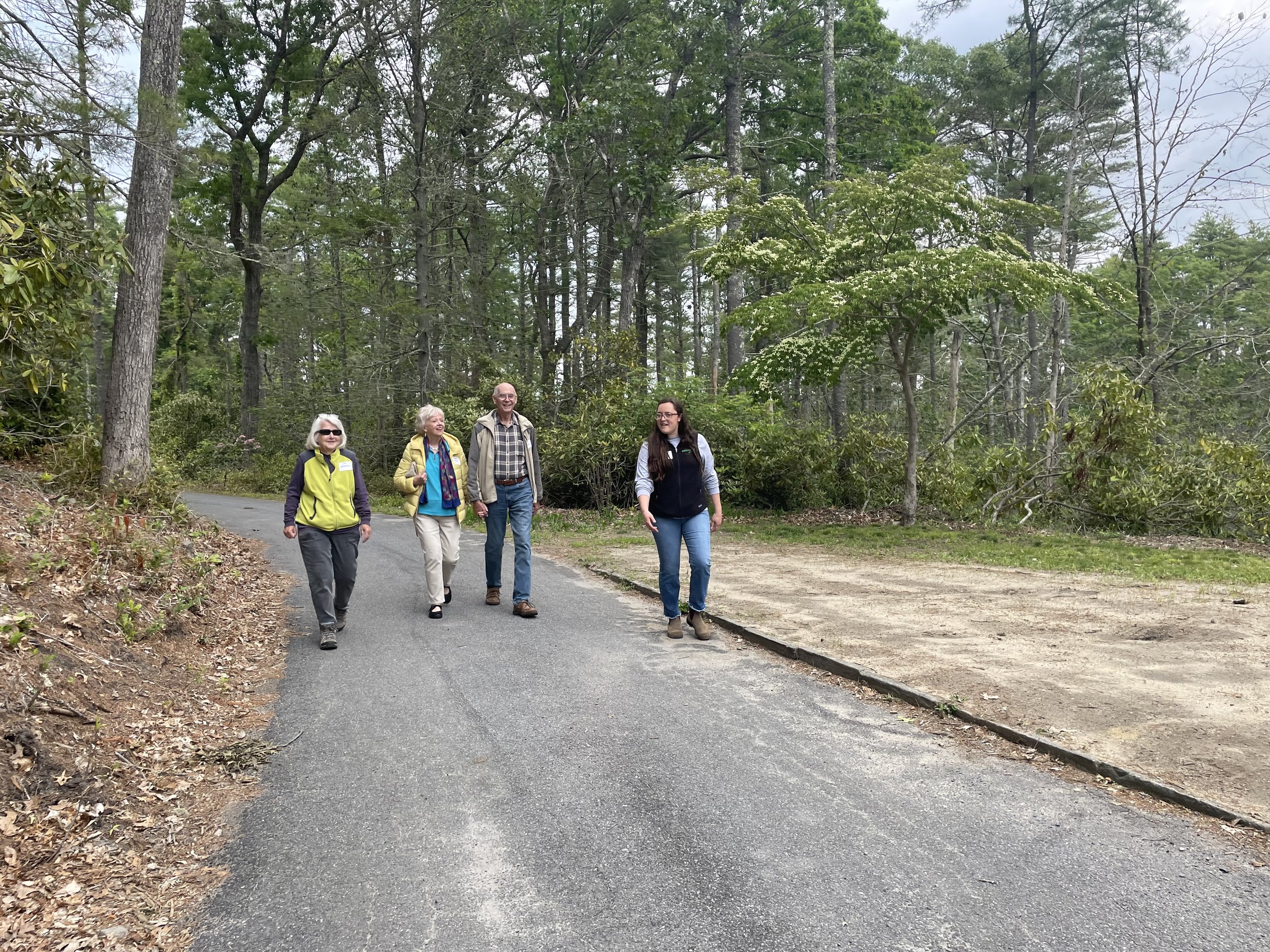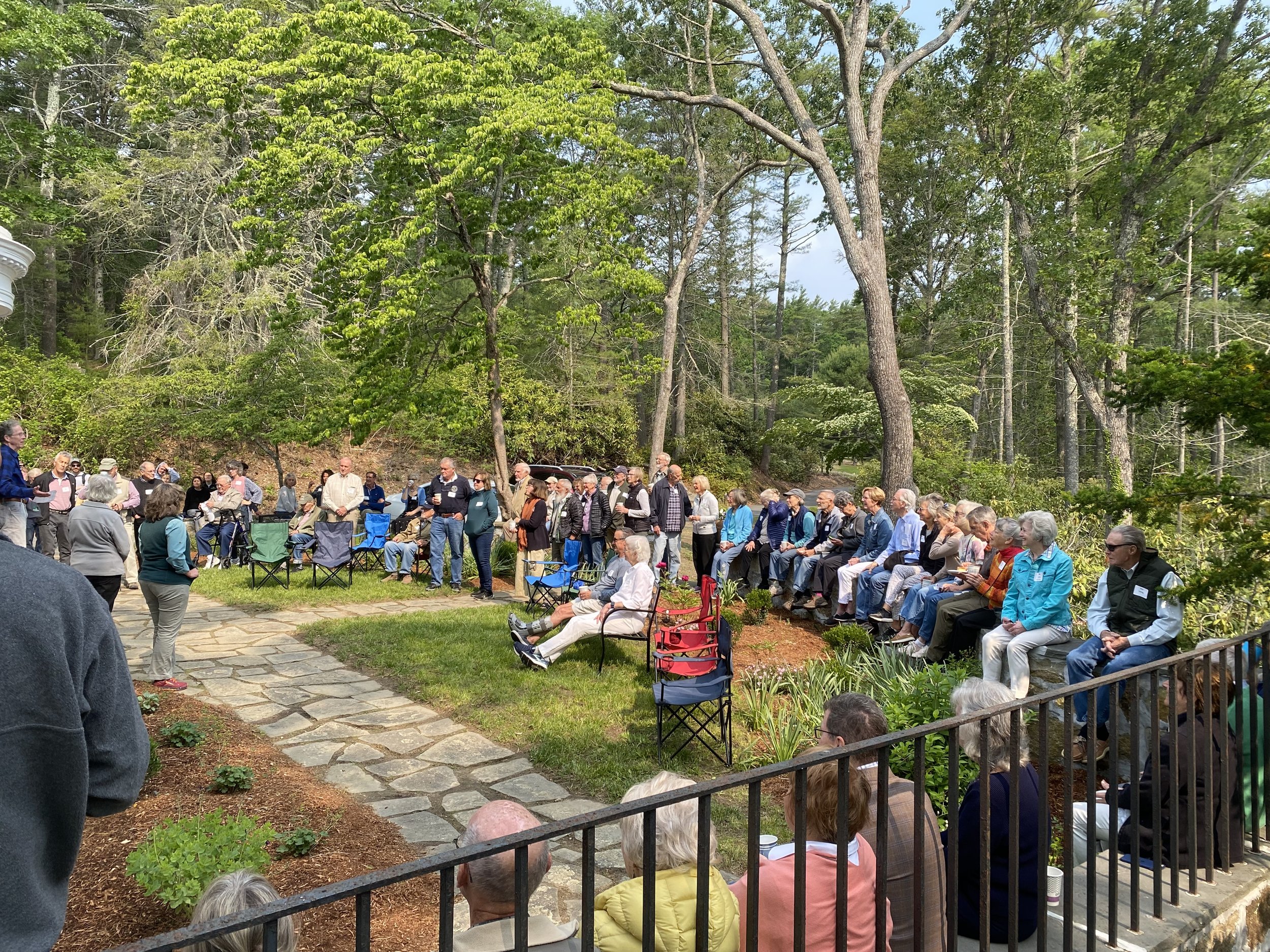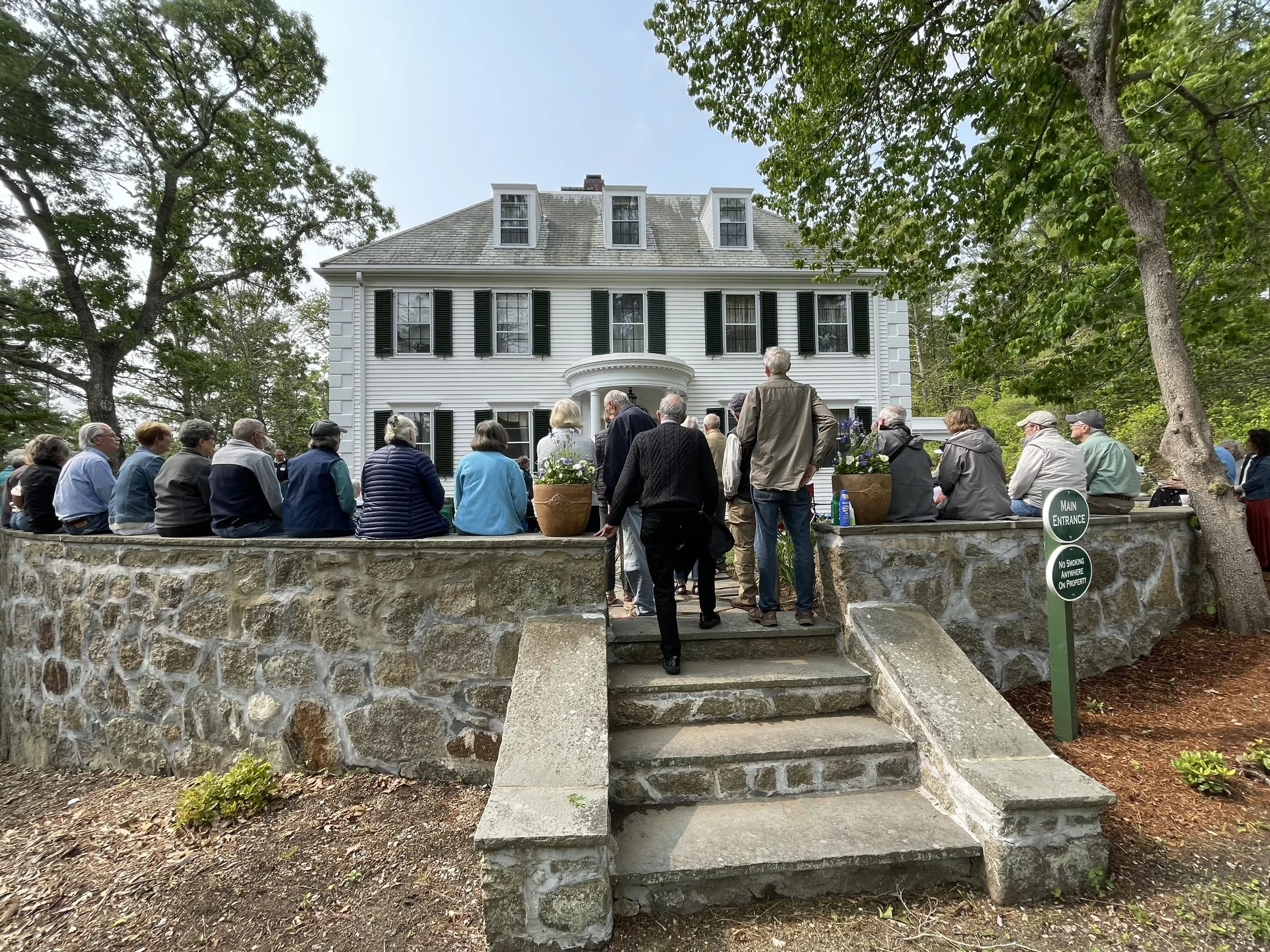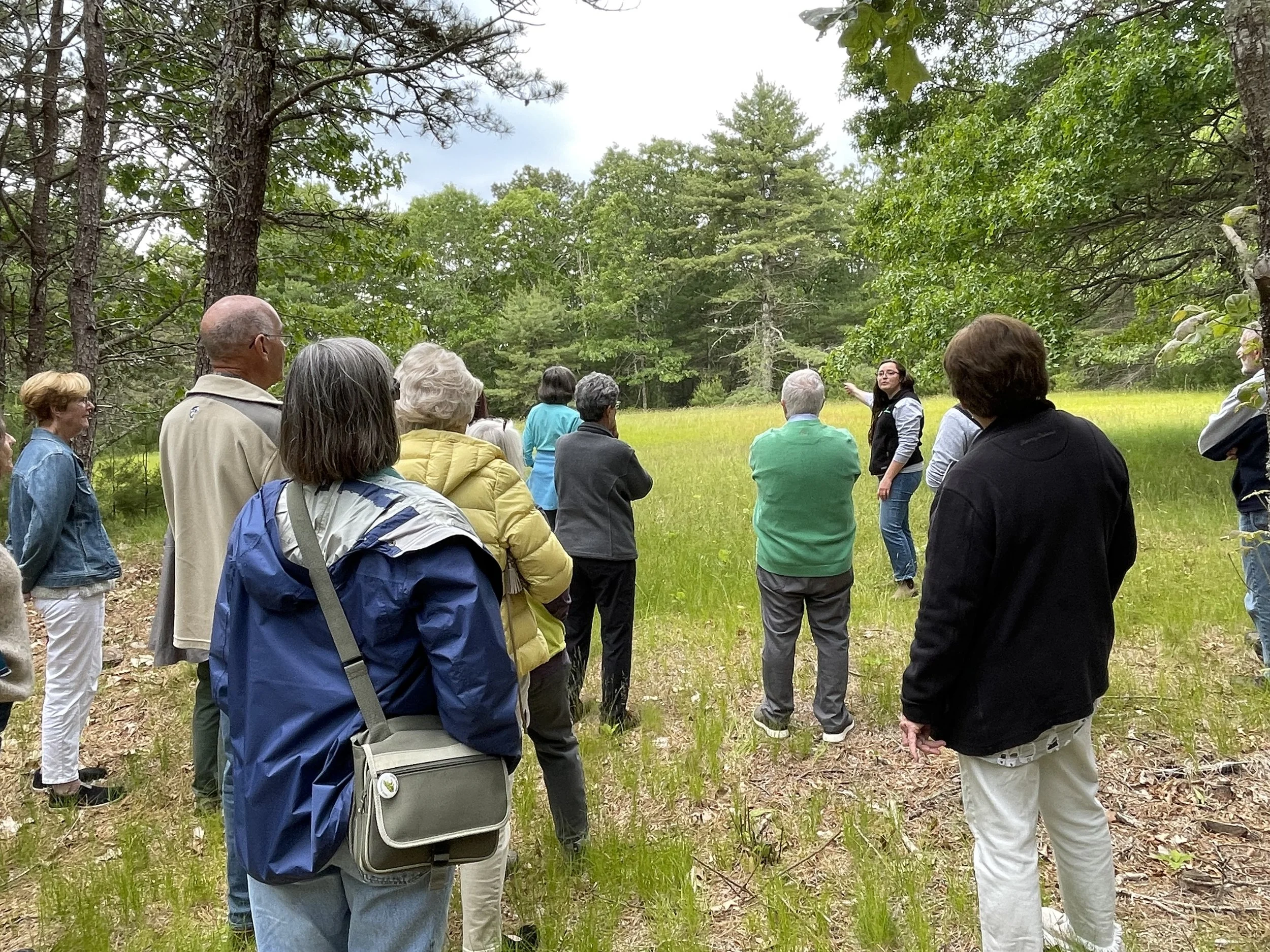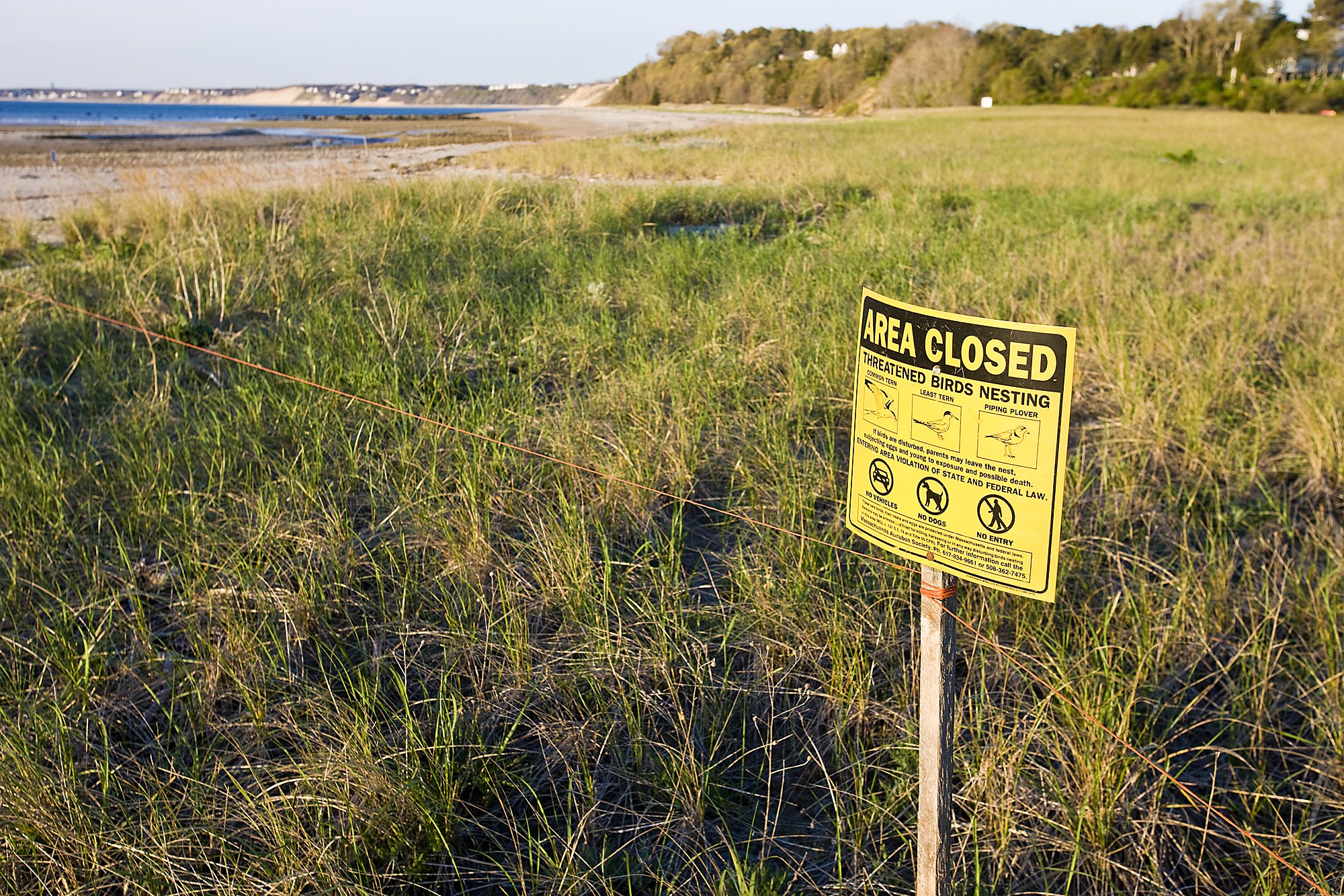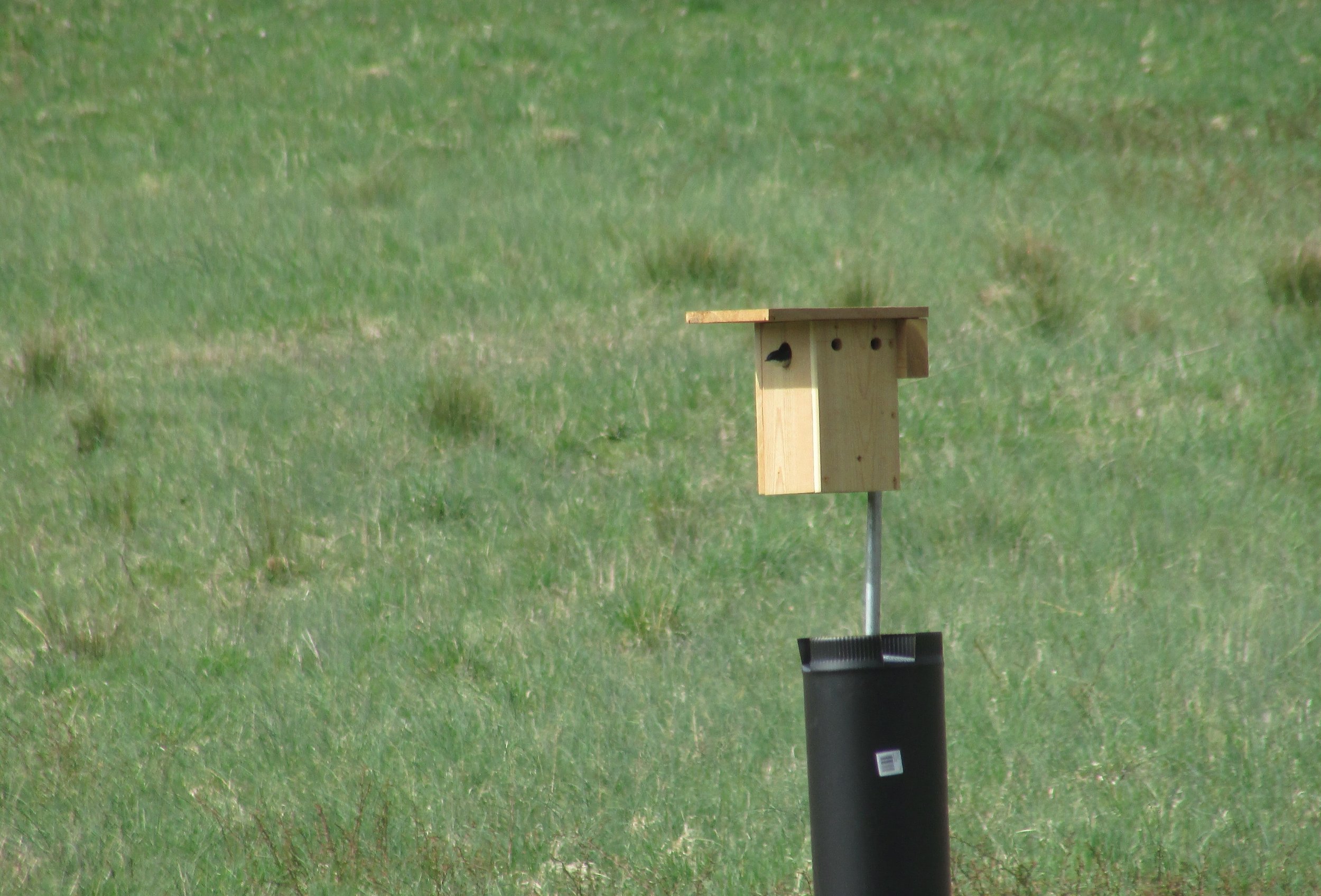By Kyla Isakson, Membership and Digital Media Coordinator
Leadership Council members gather around the Stewardship Training Center front gardens to listen to remarks by Board Chair Sam Chapin and President Karen Grey.
On Thursday, June 8, Wildlands Trust welcomed over 60 Leadership Council members to explore our recent 30-acre acquisition on Halfway Pond in Plymouth. The reception honored those who have contributed major gifts this year. We were so happy to host this wonderful group and show them our deep appreciation for their generous support.
After a hearty breakfast in our new Stewardship Training Center (STC), guests were ushered out to the blooming front gardens to hear from Board Chair Sam Chapin and President Karen Grey. Sam shared some wonderful knowledge about the property and the area surrounding beautiful Halfway Pond. Karen followed to detail the immense growth that Wildlands has experienced over the last 50 years, and how much more there is to look forward to, starting with establishing the STC to improve the skills, knowledge, and capacity of the land stewardship community in Massachusetts. Following these uplifting speeches, Leadership Council members had the opportunity to intermingle, take a short tour around the property led by our stewardship staff, and explore the impressive 12,000-square-foot Center, from the woodshop and learning area in the basement all the way to the bedrooms and attic. We were proud to show off our newest undertaking, and although there is still much to do, we are excited to see how this project will take shape and help advance land conservation through skill-building for volunteers and continuing education for professionals.
Stewardship Coordinator Zoë Smiarowski shows Leadership Council members around Wildlands’ new 30-acre parcel on Halfway Pond.
Leadership Council gifts are the foundation of Wildlands' annual giving, making it possible for us to continue to grow and meet the conservation needs of Southeastern Massachusetts. Our region benefits greatly from the generosity of this special group of donors, including through cleaner air and water, protected habitats for diverse wildlife, and abundant open space for all to enjoy.
To show our appreciation for the Leadership Council, Wildlands hosts a celebration in the Conservation Barn at Davis-Douglas Farm each fall and offers a Preserve Tour at a different Wildlands property each June. Leadership Council members are also recognized on a plaque that hangs in the Davis-Douglas Farmhouse at our headquarters.
Do you, too, want to provide vital support for Wildlands’ efforts to preserve the natural heritage of Southeastern Massachusetts? Join our Leadership Council today and secure your spot at our next special event this fall!
Click through the slideshow below to see more photos from the Preserve Tour.
